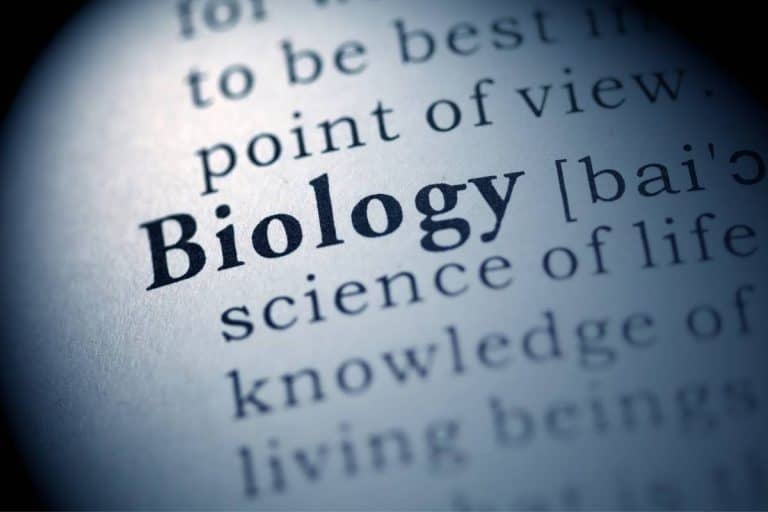Is Majoring in Political Science a Bad Idea?
A university degree should lead to a decent-paying job, and degrees in high-demand jobs like computer science will practically guarantee a job. But not everyone is into computers. If a person wants to make a difference in the world, is a political science degree a bad idea, or will it be of any use?
Majoring in political science isn’t a bad idea. It can be worth it for students who want to work in politics, nonprofits, or for businesses. However, a successful career will require strong networking skills as well as persuasive and communication skills.
The good thing about a versatile degree is it doesn’t tie you down. For example, if you don’t like being a lobbyist or legislative assistant, you can opt to work in marketing, nonprofits, or media. Read on to find out what you can do with a political science degree and how much you can make.

Is a Political Science Major Useless?
A political science major isn’t useless. The misconception exists because many people don’t know what one learns in political science classes. Also, since they don’t see how it leads to a job, people assume there’s no point to the major.
Without looking at the major’s course of study, it’s unclear what’s in the political science curriculum. Does one study political parties, famous politicians, or the history of politics? If that’s the case, it sounds like a history degree.
It’s also difficult to imagine where science is in the field. A scientist makes a hypothesis, tests it, and then replicates the tests. Yet, if you see political science students on campus, they’re involved in campus protests—or so it seems.
Also, to the average student, the path between degree and career is unclear. For example, an accounting degree leads to a career as an accountant, someone who gets a chemistry degree can have a career in chemistry, and so on. But there doesn’t seem to be a career path for a political science degree.
Add the questions up: What do political science students study? How is it a science? And what do you do with the degree? No wonder it seems like a useless major.
What Can You Do With a Political Science Major?
A political science major gives you numerous career choices. Unlike other degrees, however, the path isn’t always a straight line. A successful degree is partially dependent on how well you network with others.
Let’s start with the obvious choices.
Political Consultant
A politician’s campaign strategy includes many factors, including seemingly mundane things such as the ideal color tie to wear during political rallies and what issues will resonate with voters. These decisions are based on the political consultant’s expertise. A consultant uses political theory to advise politicians.
An extensive campaign will hire more than one consultant—especially fundraising and media. They’ll rely on the persuasive strategies they learned.
Political Campaign Staff
Before becoming consultants, political science graduates hold other campaign staff positions.
For example, a field director oversees the campaign’s grassroots organization. They hire field organizers who train volunteers that’ll mobilize and persuade voters.
Fundraising is directed by a finance director, who not only plans fundraising campaigns but advises candidates on one-on-one fundraising.
Pollsters analyze results from surveys and focus groups and report their findings to the consultants. Speechwriters also rely on persuasive techniques in crafting a candidate’s message. And recently, campaigns have added social media directors to strategize how to reach and motivate voters through social media.
One person will wear many hats in a small campaign, but larger campaigns might have a team of pollsters, several speechwriters, or a team devoted to social media.
Legislative Assistant
Legislative assistants assist lawmakers in the writing of legislation. They edit legislation, write legislative amendments, legal memoranda, and other written documents. They also help track expenses, pinpoint problems, and monitor them.
In addition, assistants can be hired for specific administrative tasks, including office operations, managing constituent requests, scheduling, arranging travel, and supervising staff and volunteers.
Lobbyist
A lobbyist attempts to influence opinions and to help to create specific actions. The purpose of lobbying is to convey a message that’ll promote change in social and political environments.
Professional lobbyists are those who try to discuss and negotiate the terms of legislation with legislators or their staff.
Policy Analyst
Policy analysts analyze existing and future challenges, propose solutions and evaluate them. Once a problem is identified, analysts may try to discover its causes. They’ll then examine how different ideas and suggestions of policy could provide solutions.
The next set of careers also build on skills learned in political science classes but aren’t in a political field.
- Nonprofit Director. The director of a nonprofit is responsible for managing the organization’s operations, programs, and strategic plans. Funding, marketing, and community outreach are also important tasks. The director then reports to the nonprofit’s board.
- Marketing Analyst. Marketing analysts assist firms and organizations in deciding which items and services to sell. They also assist with identifying potential consumers and what price they’d be willing to pay. By researching market realities, competitors’ actions, and customer response, they make recommendations to the firms and organizations that hire them.
- Public Relations. Public relations experts create and promote a favorable image for their clients. They do so by creating, organizing, and managing a media campaign. In some organizations, they’re also involved in raising funds for their clients.
- Public Opinion Researcher. Public opinion researchers help to assess public opinion about social issues or products. They design and use surveys or collect information from a sample of the population. They gather, analyze, and interpret data and views to help shape opinion.
- Professor. Professors specialize in the political science field as they earn advanced degrees. In addition, nearly all teaching positions at universities will require a doctorate in the field.
Sources: The Balance Careers and U.S. News
How Much Can You Make With a Political Science Degree?
How much you make with a political science degree depends on your career choice. For example, salaries are higher in business and government jobs and the lowest in legislative and campaigning positions. And even within a field, the pay can vary greatly.
For example, the Occupational Outlook Handbook lists the median pay for political scientists in 2020 at $125,350 per year (source). Median doesn’t mean average but the middle. So half of the political scientists made that amount or more and the other half less.
According to Payscale, the average salary for a political scientist was much lower, at $55,479 a year (source). The site also contains a calculator to see how years of experience and location can affect one’s salary.
For example, Glassdoor, another job offering site, lists an average salary of around $45,956 for Raleigh, North Carolina, and $50,756 in Denver, Colorado.
Finally, median salaries are also affected by what kind of work a political scientist does.
- Diplomat: $90,000
- Survey Researchers: $59,000
- Policy Analyst: $59,000
- Legislative Assistant: $40,000
- Journalists: $43,000
The job outlook for poli-sci degree holders is around the national average of 9%.
One other thing to keep in mind: these salaries are specific to a political science degree holder or a political science job listing. A student planning to use a poli-sci degree to work in a field like marketing analyst should use tools such as the Occupational Outlook Handbook, Glassdoor, or LinkedIn for job listings in those fields.
How To Start a Career With a Political Science Degree
A successful career requires a great deal of networking, possibly more than with other degrees. Developing your network starts in college. Professors can provide crucial contacts, and classmates can become collaborators or competitors for jobs.
To secure political science work, a student should do an internship after graduating, as they provide experience and give you additional opportunities to network. In addition, paid internships are more likely to lead to full-time jobs.
The next step is entry-level jobs in Congressional offices, for organizations such as Amnesty International, or with media companies. From there, political scientists can find well-funded and secure employment.
However, the competition for these secure jobs can be fierce, which is one reason many poli-sci students spend an additional year in school to earn a Master’s degree.
What Do You Learn in Political Science Classes?
You’ll learn far more than politics in political science classes. Political science is the study of power, how institutions use it, and how they can use the power to influence others.
In addition, students learn how to develop and carry out research on different political issues. They must learn how to communicate their research clearly, and they’re taught the persuasive techniques necessary to influence people.
Colleges usually organize political science classes into five groupings, and students take introductory courses in these fields before choosing their focus.
Political Theory
Some political scientists research the tradition from Plato to the current day. This area attempts to respond to problems and build ideas on topics such as ethics, authority, the nature of freedom, the importance of civil rights, and how governments should run.
American Politics
The largest area of political science, the American government, focuses on electoral behavior, political parties, legislation, the Constitution, public administration, public policy, and other elements of American government. Some departments call this “civics.”
Students study electoral behavior, political parties, legislation, the Constitution, public administration, public policy, the judiciary’s function, and other elements of American government.
Comparative Politics
Comparative politics examine other countries’ governmental systems. A comparative scientist may, for example, analyze the influence of political parties on elections in Canada, the United Kingdom, and the USA or compare the constitutions of Argentina and Honduras.
International Relations
Researchers in international relations investigate how countries interact. While comparative policy compares a state’s internal functioning, international relations focus on how nations interact, such as why and how states trade, cooperate and compete.
Political Methodology
Political methodologists examine current statistical methods and generate fresh methods to utilize statistics to estimate, identify, and make meaningful political data. The main goal of this branch is to identify the most efficient and precise techniques for testing and analyzing ideas and data.
How Political Science Differs From History
Sometimes people don’t know how political science is different from history. Both fields examine and use the past to help us understand the present. But there are some significant differences between the two.
For one thing, history is a study of the past and how it affects the present and the future. The emphasis is on trying to understand past events To do that, historians study past social, cultural, and political events. They strive to be accurate and balanced, and this often requires them to read numerous recollections about the past. Then they must decide what’s true.
Source: Maryville University: What is a History Major
Historians can specialize in regions, time periods, or individuals. They can study the history of art or music in a culture and trace a country’s development or social movements. They can even study political movements.
But history isn’t considered a science. A historian doesn’t create a hypothesis that can be tested and replicated. Instead, history is the art of gathering reliable information about past events.
Although history isn’t a science, historians rely on scientific processes to help them sift fact from fiction. For example, to ensure that a document is authentic, they turn to carbon dating. In addition, geology and geography are needed to locate historical sites.
On the one hand, one could argue that political science is simply a branch of history that deals with political events. Although there’s some truth in that, a political scientist’s goal is to use past events to predict what might happen in the future.
Think of an event that happened in your past. A historian would try to uncover precisely what happened. The political scientists would try to predict how the experience could affect a decision you make in the future.
Who Are Some of the Most Famous Political Scientists?
The list of some of the most famous political scientists includes Greek philosophers, especially Aristotle. Other famous people that are now considered political scientists are Machiavelli, Thomas Hobbes, John Locke, and Woodrow Wilson.
Let’s go over these famous political scientists in a bit more detail.
- Aristotle is considered the “father of political science” because he viewed how power was being used to influence people. Instead of simply retelling events as poets and playwrights did, he analyzed what caused them to happen.
- Machiavelli emphasized the importance of strong leaders for the welfare of the state. A strong state meant people would feel secure, and he maintained that a leader should be ruthless if needed to maintain control of the state.
- Hobbes and Locke debated how power should be used, with Hobbes arguing that government should be run by a strong central authority, which at the time was a monarchy. Locke maintained that strong leaders were not needed because people would act in their own best interests.
- Before becoming president, Woodrow Wilson, a professor at Princeton, was among the first generation of political scientists. Professors at Harvard, Columbia, and Johns Hopkins joined him to develop the first political science programs. Their students reduced the focus on history, thereby putting the science in political science.
Since then, most political scientists have taught at universities, publishing and training subsequent students.
Bottom Line
If you’re interested in a career in government, politics, or influencing public opinion, a political science degree will give you the background to be successful. However, the degree requires strong networking skills and flexibility. Therefore, a student looking for a direct career path should choose a different degree.
Recommended Reading:







